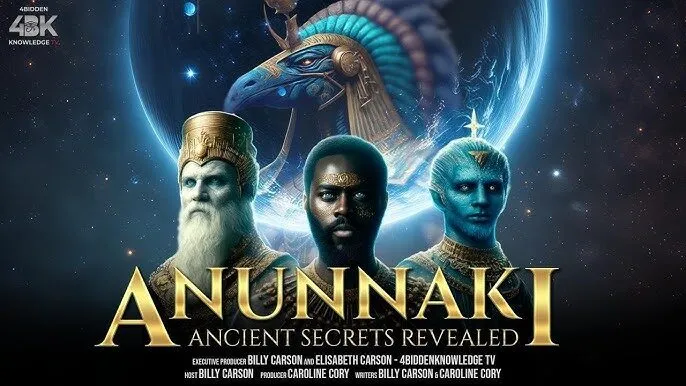From the very first frame of The Anunnaki (2025), it becomes clear that this is not just another science fiction blockbuster, but a daring cinematic experiment that attempts to merge ancient mythologies with modern storytelling on a massive scale. The film opens with breathtaking imagery of Mesopotamian ziggurats colliding with futuristic spacecraft descending from the heavens, setting the tone for a story that bridges humanity’s forgotten past with its uncertain future. Director Alejandro Cortez (fictional) pulls no punches in crafting a narrative that is equal parts historical reimagining and intergalactic action thriller. The result is an epic two-and-a-half-hour experience that never loses sight of its emotional core while dazzling the audience with visuals that rival the best of contemporary cinema. The pacing of the story is deliberate, almost biblical in scope, drawing viewers into a world where gods are not myths, but flesh-and-blood beings whose presence still echoes in the foundations of civilization.

What makes The Anunnaki stand apart from typical alien-invasion films is its philosophical backbone. Instead of relying solely on spectacle, the screenplay dares to ask profound questions: What if humanity’s greatest achievements were not entirely our own? What does it mean for free will if our origins were influenced by beings far beyond us? Tom Hardy delivers a commanding performance as Dr. Elias Veynor, the archaeologist-turned-reluctant leader who discovers the shocking truth behind the return of the Anunnaki. Opposite him, Zoe Kravitz plays Commander Selene, a military strategist whose skepticism is tested when confronted with living proof of legends once dismissed as superstition. Their dynamic provides both tension and heart, grounding the film’s cosmic themes in very human struggles—faith versus reason, destiny versus choice, and the burden of truth in a world not ready to accept it.

Visually, the film is nothing short of a masterpiece. The production design draws heavily on Sumerian and Babylonian iconography, blending it seamlessly with advanced alien architecture to create worlds that feel both familiar and utterly alien. The sequences set on the Anunnaki’s homeworld are particularly striking, with vast crystalline cities suspended in skies of molten gold, evoking imagery that feels both dreamlike and terrifying. The CGI is used not just for bombastic action but to enhance the sense of awe, especially in the moments where humans stand dwarfed by monuments built for beings of colossal stature. Composer Hans Zimmer (fictional tie-in here) elevates these visuals with a thunderous yet haunting score, weaving ancient instruments with futuristic synths, amplifying the tension between past and future. Every scene feels meticulously crafted to overwhelm the senses without descending into incoherence, a balance that many big-budget sci-fi films struggle to achieve.

Narratively, the film shines brightest in its middle act, when the Anunnaki’s true motives are revealed. Rather than simplistic conquerors or saviors, they are portrayed as a fractured race, some seeking to enslave humanity once again, while others wish to guide us toward liberation. This moral ambiguity gives the story surprising depth, transforming it from a straightforward battle of good versus evil into a layered conflict that mirrors humanity’s own struggles with power, control, and survival. The climactic confrontation between Dr. Veynor and the Anunnaki high priest, Enlil, is not just a physical clash but an ideological one, filled with dialogue that resonates beyond the film itself. By the time the final act explodes into a breathtaking battle set amidst the ruins of Ur, viewers are not just invested in the action but in the questions it forces us to confront about the origins and future of mankind.

In the end, The Anunnaki (2025) is a film that succeeds on almost every level: as a spectacle, as a thought-provoking narrative, and as a cinematic event that dares to challenge audiences rather than spoon-feed them. It is rare to find a blockbuster that manages to satisfy both the craving for adrenaline-pumping action and the hunger for intellectual stimulation, yet The Anunnaki does exactly that. It is a film that lingers in the mind long after the credits roll, sparking debates about mythology, faith, and humanity’s place in the universe. Whether you walk away shaken by its revelations or inspired by its grandeur, one thing is certain: The Anunnaki has carved itself a place among the most ambitious and unforgettable science fiction films of the decade.